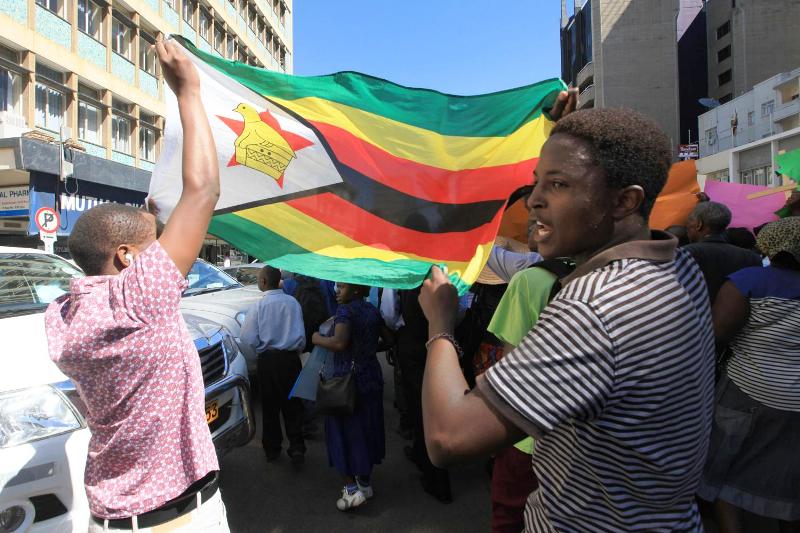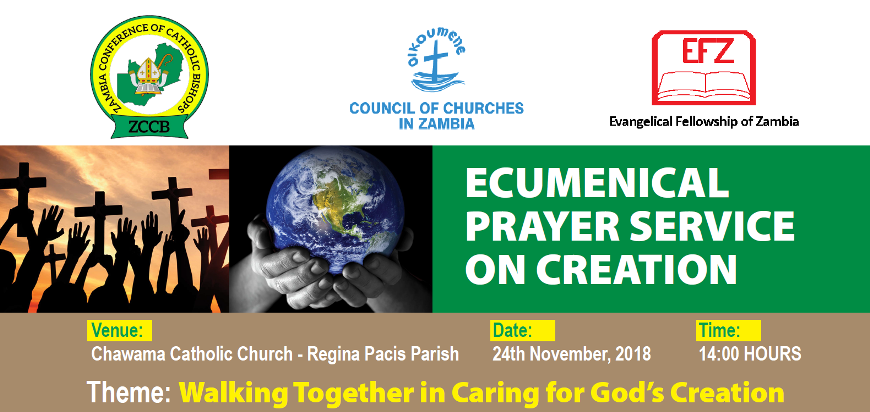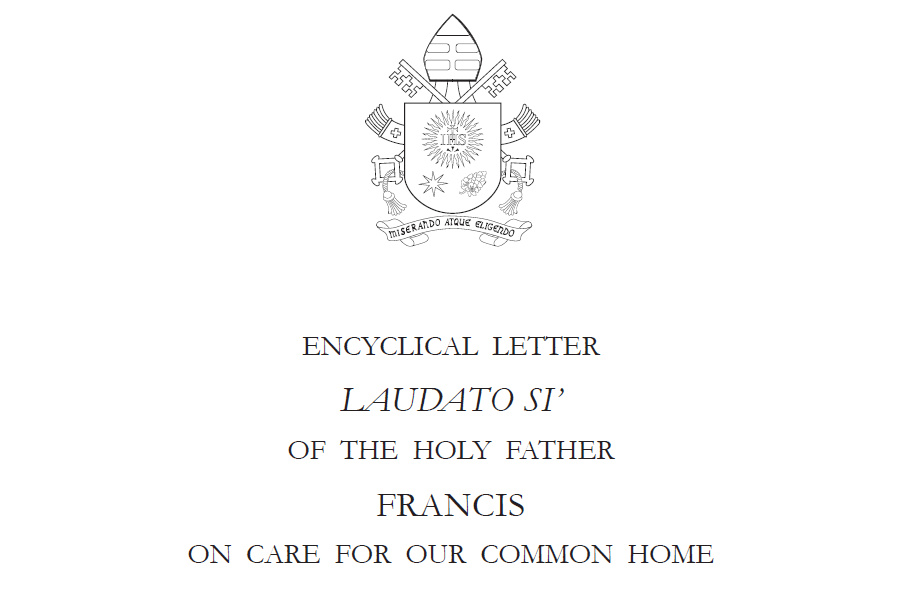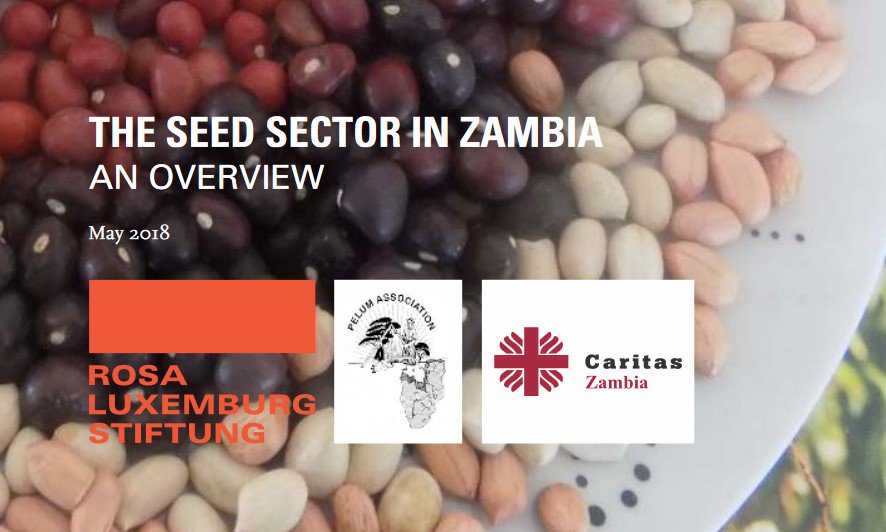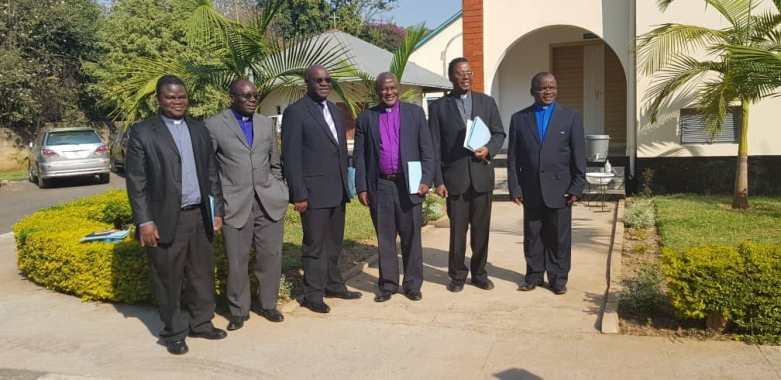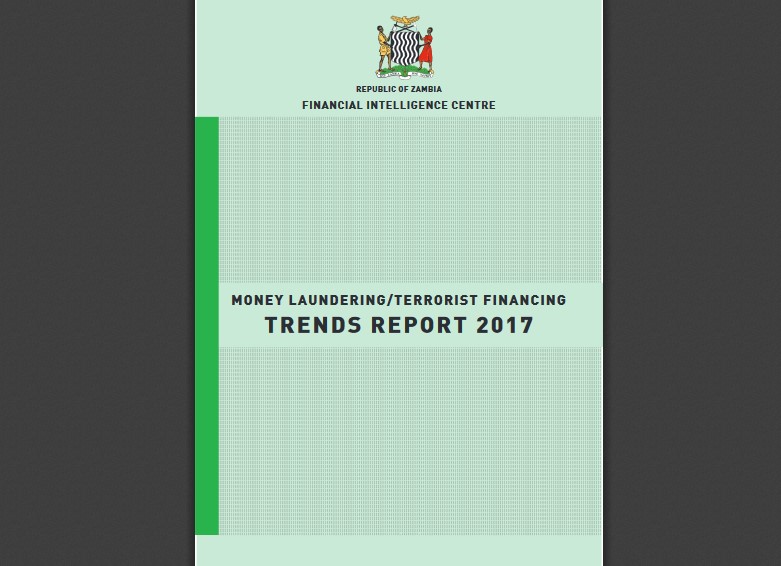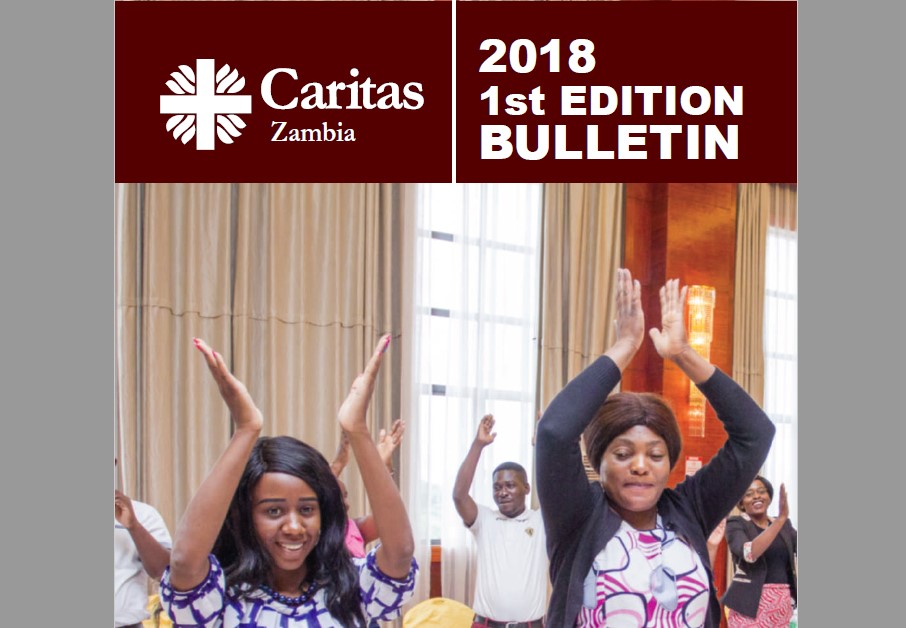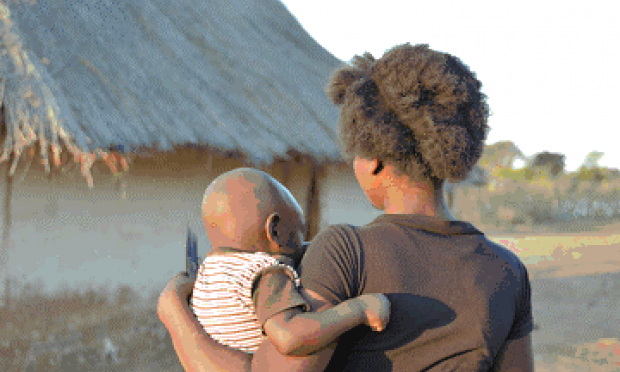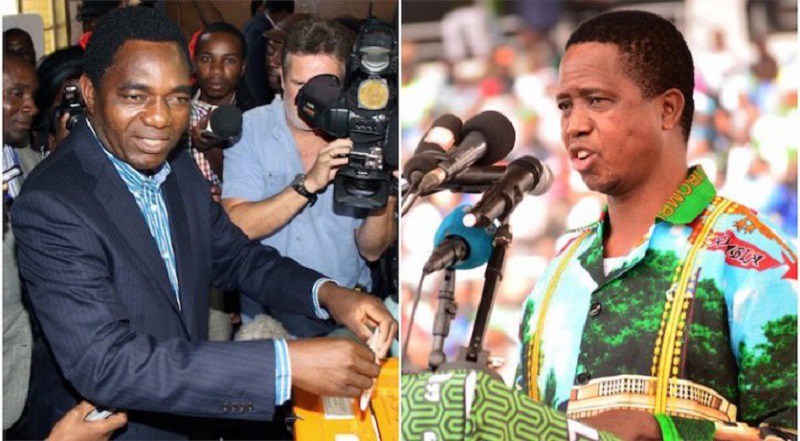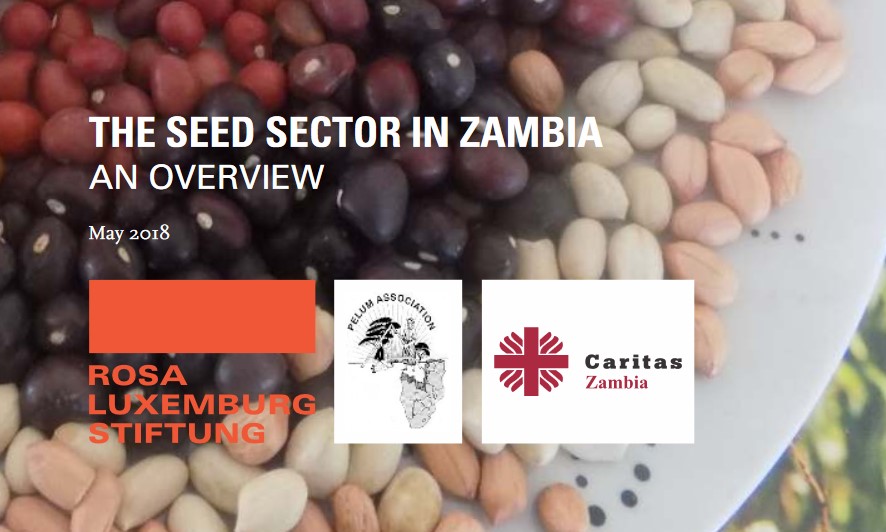Pastoral Letter of the Zimbabwe Catholic Bishops’ Conference
on current affairs in the country
Published on 17 January 2019
Dear sisters and brothers in Christ, all men and women of good will,
Introduction
(1) We begin by disowning a recent statement issued in our name during the recent stay away that started on 14 January 2019. We, the Catholic Bishops of Zimbabwe, never issued any statement during that period. We are dismayed that our name was abused in the manner it was.
On another note, we have also followed with surprise a concerted vilification of the Catholic Church in The Patriot following the publication of the post-elections report of the 30 July 2018 harmonised elections by the Catholic Commission for Justice and Peace (CCJP). In our view, the CCJP report and critical analysis of the elections was objective and factual. Fairness demands that analysis of the report, positive or negative, be challenged based on facts to the contrary and not on an imagined patriotism.
Our Observations
(2) We, the Bishops of the Catholic Church in Zimbabwe, have observed with increasing concern and alarm the state of our Zimbabwean nation from the time of the military - assisted political change that took place in November 2017 to the total shutdown of Zimbabwe's major cities and rural trading centres that began on Monday, 14 January 2019.
(3) We witnessed with sadness and concern the dissipation of hope for a united nation and a promising future when our politicians failed to harness the palpable oneness and goodwill prevailing among Zimbabweans across the political divide during and immediately after the political events of November 2017.
(4) We also witnessed with sadness and concern the resurgence of political and social polarisation before, during and after yet another disputed national election held on 30 July 2018, culminating in the violent unrest on August 1, 2018, during which property was destroyed, many people were injured and at least 6 civilians were shot dead.
(5) We have also witnessed with sadness and concern Government's piecemeal and knee-jerk reaction to the worsening economic situation, exemplified by the unilateral imposition of 2% tax on the country's major money - transfer and payment system and by the hefty increase in fuel prices on 12 January 2019, the immediate cause of the violent demonstrations and riots that brought Zimbabwe's major cities and rural trading centres into complete lockdown.
We are saddened and concerned by:
(5.1) Government's failure to arrest the deteriorating economic situation that has seen many companies close, many breadwinners losing their jobs, the cost of living soaring beyond the reach of the majority of people; these have been the cause of industrial unrest in the country's key service sectors, particularly Health and Education;
(5.2) Violent demonstrations and riots that have resulted in the destruction of property and disruption of essential services;
(5.3) Government's heavy-handed and intolerant handling of dissent and expression of rights by Zimbabwe's dissatisfied population resulting in injury and death to innocent ordinary people.
(6) We are writing at a time when our country is going through one of the most trying periods in its history. Once more the resilience and resolve of Zimbabweans is being put to test. We thank the many Zimbabweans who continue to pray ceaselessly for our Country. We, your Shepherds, write to you at this time to help rebuild hope, trust, confidence and stability in Zimbabwe.
(7) The dramatic pre-election events seemed to many Zimbabweans to promise a new chapter of our history and were greeted by most with immediate and spontaneous rejoicing. We had many reasons for hope. At the same time, however, other voices raised concerns about the unconstitutional mode of these changes, and in particular the initial and continuing role of the military with attendant risks to the freedom of our political processes that this might carry for the future. The post-election period has justified some of those concerns. Zimbabwe is burning; its economy is hurting; its people are suffering. Many ordinary Zimbabweans express disappointment that hoped-for changes are yet to be felt, in access to employment, cash and broad stakeholder consultations. Our quasi currency, operating with multiple exchange rates, is fuelling a national crisis. If we are to restore hope and trust in our nation we always need to speak the truth, no matter how painful. Only the truth will make us free (Jn. 8:32). We need to go back to the pre-election vision where Government and its President seemed to create new space for political activity, allowing for the activation of Constitutional Commissions and reform of State institutions. To get our economy working again, Zimbabwe needs strong institutions for without the necessary reforms we become irrelevant and spectators in the life of the modern world. Elections are never, in themselves, the answers to problems, but as part of a wider programme of transformation, they can be moments of national recommitment.
Beyond the Elections: Towards The Zimbabwe We Want.
(8) It is in the nature of free and fair elections that no individual or group should be able to determine the results. It is certain, therefore, that some will be disappointed. The issues that face us are not simple, and we are divided in our opinions about the way forward. If it is true that, as we wrote in March 2013, “most Zimbabweans have lost trust in the leadership”, it is also true that an exaggerated trust in individual leaders or parties has not in the end served us well. We do not need a strong man or woman but strong institutions. We need to develop a new and challenging kind of politics, a new cooperation and harmony based on reasoned argument, generous compromise and respectful toleration. Zimbabwe is faced with a crisis that is not just political and economic but moral and spiritual. A new Zimbabwean politics needs to be more collaborative, inclusive and based not on one or two leaders, however effective and charismatic, but rather on strong democratic institutions that embody and secure the values of our democracy, regulate our politics, build trust and administer peace, truth and justice to all.
We now need to set our main focus on the type of society that we desire in Zimbabwe for ourselves and for our children. As Zimbabweans, we need to contribute as equal and respected members to solutions to difficulties of elections and the reform of the electoral process; national healing and reconciliation; criteria for addressing long term issues of governance; transparency and accountability; poverty, unemployment, economic inequality, development, rural to urban migration, conflict resolutions and injustices, among others.
(9) Recommendations
(9.1) We call upon Government and the Opposition to put their differences aside and work together to free Zimbabwe from economic shackles and international ostracisation. His Holiness, Pope Francis, in his Message for World Peace Day 2019 says: “Politics is an essential means of building human community and institutions, but when political life is not seen as a form of service to society as a whole, it can become a means of oppression, marginalization and even destruction.” We hasten to say a precedent for working together between Government and Opposition was set when the Government of National Unity (GNU) was formed under similarly difficult circumstances in 2009 and Zimbabwe's economy and prospects were positively revived and only began to regress yet again from the time the GNU expired in 2013;
(9.2) We call upon Government to consult broadly and desist from unilateral imposition of policies that exacerbate the people's suffering and to have policy consistency in order to instil confidence in investors, especially foreign investors;
(9.3) We call upon Government to desist from heavy-handed handling of dissent and expression of rights and grievances by the people and to desist from denying people their rights, including the barring of access to social media communication imposed on 15 January 2019;
(9.4) We call upon all people to exercise tolerance towards each other and to express their constitutional rights in a peaceful and nonviolent manner. Peaceful protest is provided for in the Constitution. Regrettably, citizens’ protests and acts of civil disobedience degenerated into violence, destruction of property, injury and loss of life. We urge you to always shun violence and be mindful to respect everyone’s rights, especially those who do not agree with you.
Conclusion
(10) While for many hope for a better Zimbabwe might appear lost, we re-affirm St. Paul’s message that when all else fails, there are three pillars that remain for us to hold onto: Faith, Hope and Love (1Corinthians 13:13). We believe in a God of second chances, who is always offering us new opportunities. Even in the midst of current tensions and disturbances there are new opportunities to rebuild hope, trust, confidence and stability in our country. The task at hand requires our collective responsibility in upholding everything that is good and right, to promote unity, reconciliation, and national cohesion. We wish to state our firm belief that Zimbabwe would easily become one of the best countries to live in on earth if only all of us, it's people, committed to living and working with each other in harmony, tolerance and peace, putting the interests of the country before selfish and political party interests. "Behold how good and pleasant it is when brothers live together in unity" (Ps133). Let us seize all opportunities to rebuild hope, trust, confidence and stability, accompanied by ongoing prayers for our country.
God bless you all.
+Robert C. Ndlovu, Archbishop of Harare (ZCBC President)
+Alex Thomas, Archbishop of Bulawayo (ZCBC Vice President)
+Paul Horan, Bishop of Mutare (ZCBC Secretary/Treasurer)
+Michael D. Bhasera, Bishop of Masvingo & Pontifical Administrator of Gweru
+Albert Serrano, Bishop of Hwange
+Rudolf Nyandoro, Bishop of Gokwe
+Raymond Mupandasekwa, Bishop of Chinhoyi
The three Church Mother Bodies namely; the Zambia Conference of Catholic Bishops (ZCCB), the Council of Churches in Zambia (CCZ) and the Evangelical Fellowship of Zambia (EFZ) have planned an ecumenical service – a day of a day of prayer for creation on 24th November, 2018 in Chawama Compound.
The theme of the service is ‘Walking Together in Caring for God’s Creation’. This service is aimed at raising awareness on the importance of caring for creation to prevent disasters that may result from uncaring attitude towards God’s creation that supports life. The service is timely and a reminder of the Cholera outbreak experienced early in the year, and therefore the need to care for the environment
We therefore write to cordially invite you to the said Ecumenical Church Service which will be held at 14:00hrs at Chawama Regina Pacis Parish. Attached below is the programme for your information.
For any further information, kindly get in touch with Fr. Boniface Sakala on +260972233806
Yours Sincerely,
Fr Cleophas Lungu (ZCCB SECRETARY GENERAL)
Fr Emmanuel Chikoya (CCZ GENERAL SECRETARY)
Rev. Pukuta Mwanza (EFZ EXECUTIVE DIRECTOR)
The Invitation and the Programme can be downloaded in full here:
INVITATION - http://caritaszambia.org/phocadownload/general/Ecumenical-Service-on-Care-for-Creation-2018.pdf
PROGRAMME - http://caritaszambia.org/phocadownload/general/Ecumenical-Service-Program.pdf
ECUMENICAL PRAYER SERVICE ON CREATION PROGRAMME
VENUE: CHAWAMA CATHOLIC CHURCH -REGINA PACIS
DATE: 24th November, 2018
TIME: 14:00 HOURS
ORDER OF SERVICE
1. Hymn - CCZ
2. Call to worship – EFZ
3. Opening Prayer
4. Welcoming Remarks
5. Bible Readings (3)
6. Hymn – ZCCB(ZEC)
7. SERMON
8. Hymn - CCZ
9. Offering (For general clean up in Chawama)
10. Hymn – EFZ
11. Intercessory Prayers (3)
a. Thanking God for Creation
b. Taking care of our creation(Our Duties and Responsibilities)
c. Peace
12. Hymn ZCCB(ZEC)
13. Resolution/Actions to be carries out
14. Benediction
15. Recession Hymn CCZ
16. TREE PLANTING
MC. Rev. Rabson Tembo
As we celebrate the ‘Season of Creation’ here is an Encyclical Letter LAUDATO SI’ of The Holy Father Francis on care for our common home.
Download it here http://caritaszambia.org/phocadownload/homillies/encyclical-letter-laudato-si-of-the-holy-father-francis.pdf
Caritas Zambia, PELUM Zambia hosted a meeting reflecting on national and regional seed law reforms. The meeting brought together different CSOs and farmers concerned on seed law reforms in the seed sector.
We acknowledge and appreciate Government's vision to promote diversification in the agriculture sector by promoting, among other measures, the use of improved crop varieties and certified seed. We also recognize and appreciate the existence of legislation to further support diversification such as the Plant Breeder's Right Act and Plant Variety and Seed Act No. 21 of 1995 which provides for regulation, control, production, sale and import of seed as well as testing and for minimum standards of germination and purity. Above all, we appreciate Government's recognition of the existence of the formal and informal seed sector.
However, we, Caritas and PELUM Zambia, together with the key stakeholders from the meeting are concerned about the limited focus on farmer rights and seed sovereignty. Seed sovereignty includes the farmer's rights to save, breed and exchange seeds, to have access to diverse traditional open-pollinated seeds which can be saved, replanted and which are not genetically modified, owned or controlled by emerging seed giants. Seed sovereignty recognises the importance of Farmer Saved Seed Systems (FSSS) which is essential for food security at the household level as the commercialised seed is mainly accessible to those farmers with some disposable income and is able to purchase them. This creates a gap in boosting food security for most rural households .
Besides displacing and destroying diversity, commercialised seed varieties are also undermining seed sovereignty and farmers rights. Furthermore, the multinational capture of local seed companies is a process that has long been underway in most parts of Africa and is marginalising the local seed companies which in most cases promote the open-pollinated seed varieties. Across Africa, new seed laws are being introduced which enforce compulsory registration of seeds with a bias towards Distinct Uniform Stable (DUS) which the traditional seed varieties do not conform to, thus making it impossible for small-scale farmers to grow their own diverse traditional seed as seed but rather grain , and forcing them into dependency on the giant seed corporations which mainly grow hybrid seed which cannot be recycled and depends heavily on synthetic chemical fertilisers and pesticides not friendly to the environment.
Therefore, in view of the above concern s and in the context of our quest for socio-economic and environmental justice, we the CSOs make the following resolutions:
Awareness rising: We appeal to relevant institutions such as Seed Control and Certification Institute (SCCI) to exercise their mandate of providing information to the general public, farming community and those affected by the changes taking place within the seed sector in Zambia. We urge the government to dialogue with various stakeholders including farmers in all issues related to seed reforms and implementation. We stand in solidarity with the farmers by sharing information and capacity building and education to make them more informed, empower ed to make the right decisions on issues that affect them such as seed law reforms. We envisage a seed sector that emphases and respects the role played by women who have been custodians of seed and biodiversity conservationist in African traditional society .
National seed policy; with the introduction of a number of reforms and protocols at regional level. We appeal to the government to consider finalising the draft national policy of 1999 which would regulate the sector. We hope to see a decentralised consultative process to this process and the effective recognition of farmer’s rights and the support of farmer managed seed systems which are to be supported by policy to reduce restrictions during trade, as currently trade can’t go beyond achieving economic benefits. Further, there is a need for the development of regulations that protect our diverse genetic resource and traditional knowledge and ensure that the benefit-sharing System is inclusive and implemented .
Lobby for space in all consultative processes: There is a need for a formal platform to be created that will allow for effective CSO and farmer participation in policy formulation and decision making to ensure that farmer ' voices are heard. We request for space at all levels horizontally and vertically by a more diverse CSO that will allow for more and effective CSO representation and participation. Consultative engagements and representation of key stakeholders is key in achieving seed sovereignty, and this responsibility lies with national governments who should ensure that the rights of the farmers are recognised and protected in national policies and legislation for the sake of national building and social and economic development.
The entire Policy brief on the Seed Sector can be found and downloaded here http://caritaszambia.org/phocadownload/policy_briefs/CSOs-concerns-on-seed-sector-reforms.pdf
1. PREAMBLE
We the leaders of the three Church Mother Bodies in Zambia, namely: the Council of Churches in Zambia (CCZ), the Evangelical Fellowship of Zambia (EFZ) and the Zambia Conference of Catholic Bishops (ZCCB), greet you all in the name of our Lord Jesus Christ.
As we embark on this difficult journey of leading the entire nation into a process of national dialogue and reconciliation, we are compelled by the love of Christ (2 Cor. 5:14) to speak to you on critical matters relating to the preparation and management of the much talked about national dialogue and reconciliation process in our country. For us, every effort that promotes a non-violent method of transforming conflicts such as dialogue is a moment of grace and an opportunity for self-appraisal as a nation and a call for the conversion of hearts.
FOREWORD
The Financial Intelligence Centre (the Centre) strengthened its operational capabilities and stakeholder outreach in 2017, with special focus given to private sector entities exposed to Money Laundering and Terrorist Financing (ML/TF) risks. The Centre also continued to support law enforcement and national security partners in our shared objective of protecting the Zambian community from crimes associated with money laundering and terrorism financing.
In 2017, the Centre also took on the role of “Supervisor of Last Resort” for reporting entities that presently do not have a clearly laid down legal framework for monitoring and regulating their responsibilities for reporting ML/TF activities, such as: Casinos, Motor Vehicle Dealers and Real Estate Agencies. This followed the amendment of the Financial Intelligence Act No. 4 of 2016. Another significant development was the incorporation by the Centre of a number of recommendations of the National Risk Assessment on ML/TF conducted in 2016.
Editor’s Note
I am delighted to introduce this first edition of the Caritas Zambia bulletin, a publication that keeps you in touch with news and developments which relate to Caritas Zambia and its work. This particular edition is an exciting one for us as it brings a new dawn in that 2018 marks the beginning of our new strategic plan for the next five (5) years.
Caritas Zambia acknowledges the crucial role of the Zambia Conference of Catholic Bishops, who support its work and ensure the success of all its focus areas. 2018 is a special year for Caritas Zambia as it marks the beginning of a new strategic plan (2018 – 2022). The Caritas Zambia strategic plan, through the support of the Conference and the participation of our diocesan partners, was developed in line with the Vision and Mission of the Conference. As we begin this year and this new Strategic Plan, Caritas Zambia is focusing on issues that are not only relevant at the National level, but also at the local community level.
TERMS OF REFERENCE FOR CONDUCTING A STUDY ON ENDING CHILD MARRIAGES AND PRODUCTION OF A CARITAS ZAMBIA POSITION PAPER WITH CLEAR STRATEGIES ON ENDING CHILD MARRIAGES IN ZAMBIA
23rd May 2018
1.0. INTRODUCTION
Caritas Zambia is a faith based non - profit making organization dedicated to the strengthening of the voice of the Church in promoting democracy and governance, rule of law, and social economic and cultural rights in Zambia. At the same time, the organisation promotes sustainable agriculture for small-scale farmers through organic farming and agroecological strategies.
1.0. Status of the National Dialogue
Caritas Zambia is concerned that there is confusion concerning the much talked about national dialogue since the involvement of ZCID in the equation. While the nation was anxiously waiting for the beginning of talks as organized and arranged by the Commonwealth, another process was being propped up and spearheaded by ZCID. Suddenly we were told that Zambians don’t want talks to be led by “foreigners” but “our own organisation” in the name of ZCID. Caritas finds this argument strange, especially that when the Commonwealth came into Zambia to lobby for the release of the UPND President nobody called them “foreigners”. After all, Zambia is a bonafide member of the Commonwealth. When Professor Gambari began preparing for a road map for this dialogue, he met all the key stakeholders and requested for the formation of a steering committee composed of key representatives from UPND, PF, CSOs and the Church mother bodies. We wonder what has happened to this process. Why is there now, a pull between those who support the Commonwealth led process and those who support the ZCID led process?
Zambia's maize seed industry is currently one of the strongest and most competitive in Sub- Sahara Africa. The seed sector in Zambia is highly pluralistic and divided into the formal and informal sector. The informal sector is mainly comprised of farmer managed seed systems (FMSS) and some Non-Governmental Organizations (NGOs) that seek to promote the sector. In this system, farmers are free to share and exchange their seeds for both monetary and none monetary items such as food items or labor. Furthermore, the informal seed sector represents a rich cultural heritage of Africa's local communities. However the push to transform the seed sector into income-generating commercialized entity owned by a few and to marginalize traditional seed varieties, is still making more headway on paper than in practice.
The other side is the formal sector which is monopolized mainly by foreign multinational companies. These seed companies have different stakes in the seed sector with some having more influence on policies and legislation governing the seed sector in comparison to that exerted by the informal sector. Most of these companies are foreign-owned and do not serve the interests of the local seed industry but focus more on corporate profits. The interests of these companies are neither farmer-based seed systems nor do they support farmers' rights.
This study aims to analyze the political and socioeconomic dynamics of the seed sector in Zambia and to give an overview of the legal frameworks, key actors and policies in the sector. It unpacks the critical social, economic, and political issues that surround the seed sector in Zambia. Based on interviews with stakeholders, the major challenges are identified and strategic interventions in line with identified political and socioeconomic dynamics are proposed.
GET THE ENTIRE REPORT HERE: http://www.caritaszambia.org/phocadownload/research_reports/seed-publication-may-2018.pdf
- INTRODUCTION
- A Keynote Speech at the launch of the new Caritas Zambia Strategic Plan
- CARITAS ZAMBIA STRATEGIC PLAN (2018 - 2022) - Promoting integral Human Development in Zambia
- Challenges Women, Children & Youth face in Pre, Post & Actively Mining Areas - A comparative case study of Kabwe, Chavuma and Solwezi
- Church Statement on National Dialogue, 8th January 2017
- The Resignation of Harry Kalaba and the need to Reclaim Zambia from the Scourge of Corruption - OASIS Forum Press Statement
- The State of the Nation 2016 – June 2017
- Statement of the Coalition for an Effective SADC Tribunal on Reinstatement of the SADC Tribunal (with access to individuals), addressed to the SADC member states (17/08/2016)
- Call for Expression of Interest - Development of Training Manual
- Message of His Holiness Pope Francis on the first World Day of the Poor: ‘Let us love, not with words but with deeds’
About Caritas Zambia
Caritas Zambia is a Catholic Organisation that is an integral structure of the Zambia Conference of Catholic Bishops (ZCCB). The Conference of Bishops is a permanent grouping of Bishops of a given nation or territory that jointly exercises certain pastoral functions on behalf of the Christian faithful of their territory. This is done for the sake of effective evangelisation. To promote the principle of the common good which the Church offers humankind, especially through forms and programmes of the apostolate which are fittingly adapted to the circumstances of the time and place, is the role of Bishops.
Kapingila Hse, Kabulonga Rd, Plot BRT6, P.O.Box 31965, Lusaka 10101, Zambia.
Tel: +260-211-260980 | +260-211-261789

